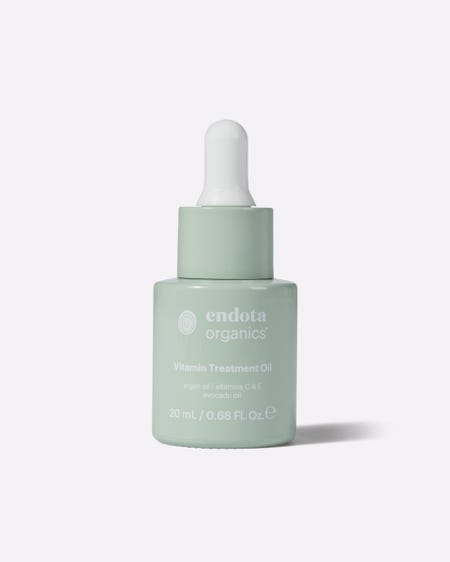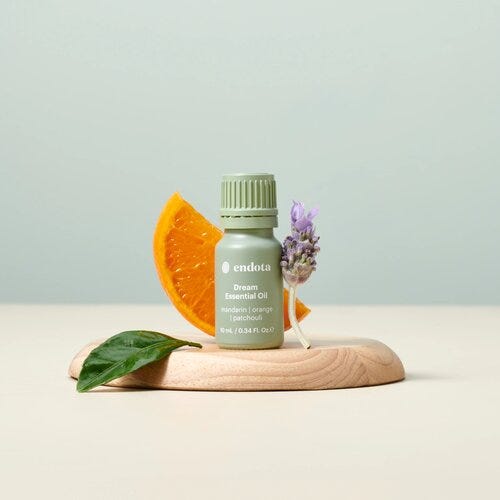
what are forever chemicals? how to avoid them with non-toxic skincare this organic awareness month
This September, endota has proudly partnered with Australian Organic to celebrate and support Australian Organic Awareness Month. While we champion organic and natural ingredients, manufacturing, and farming practices that contribute greatly to many of our skincare and wellness products, we also consider what it is that we leave out.
Harmful chemicals, such as those dubbed ‘forever chemicals’, have been widely used across many common household products, which have the potential to result in long-lasting affects to your health and the environment.
what are forever chemicals?
Perfluoroalkyl and Polyfluoroalkyl Substances (PFAs for short), commonly referred to as forever chemicals, are “synthetic substances that don’t break down in nature and typically accumulate over time,” explains Australian Organic’s Josefine Pettersson.
These man-made, toxic chemicals have one of the strongest carbon-fluorine bonds, making it hard for the bond to break and even harder for the chemical to degrade.
Hence the name, forever chemicals.
what are forever chemicals used for?
Forever chemicals have an ability to repel water, grease and oil, meaning they are often used to make products waterproof, long-lasting, stain resistant and non-stick.
This means they can be commonly found in some:
- Waterproof and long-lasting cosmetic formulas
- Non-stick cookware
- Food packaging, particularly those made from cardboard and paper
- Fabrics and textiles.
While these are just some common examples of where forever chemicals can be found, there are many other places these chemicals are hiding.
how are we exposed to forever chemicals?
Some of the ways you can be exposed to forever chemicals are through:
- Ingestion from food and liquids
- Contact on your skin
- Your airways.
health and environmental risks
With any toxic material, these chemicals can pose as a risk to the human body and environment.
impact on health
“When you use products that contain toxic components, you are increasing your risk to potential disease and stresses on your body," says Josefine.
She notes that exposure to forever chemicals can lead to “a disruption in your hormones, immune system effects, liver and kidney damage, and cancer risks.
“Forever chemical exposure can also elevate your cholesterol levels. These compounds accumulate in different parts of your body and may disrupt these local functions.”


impact on environment
While forever chemicals can have a direct impact on the human body, their toxic nature and inability to break down can cause environmental concern too.
“If a consumer is using a product that has toxic and persistent components like forever chemicals, the runoff of this might also enter the water system,” says Josefine.
This means many household products such as food, cleaning supplies and skin and body care that can contain forever chemicals can pollute waterways when they are washed down a drain. This can lead to pollution in waterways and spreading forever chemicals well beyond their usage starting point.
how do I protect myself?
Josefine explains that, as a consumer, you have an “active choice to minimise [your] exposure to chemicals.”
You can do this through:
understanding where forever chemicals are
It’s a good idea to take note of where forever chemicals are commonly found as this way you can ask yourself how you can avoid forever chemicals within your day to day.
It can be easier to start small and make incremental changes that can help decrease your exposure, rather than feeling as though you need to change your lifestyle choices drastically.
shopping and lifestyle changes
Being aware of what ingredients and raw materials make up what you buy, you can be better guided on what purchases to make.
“The best way to see the change that you want to facilitate is to support the current products within the market that are fulfilling that and drive that consumer curve towards that,” says Josefine.
“If you want more products within a space, the best way to do that and support that growth is to buy them.”
An easy place to start is to look for products across all common household categories that are COSMOS Certified organic and natural. This way you can ensure that what you are using and consuming is made with organic ingredients, farming practices that respect biodiversity and manufacturing processes that support environmental and human health.




understanding the role of non-toxic skincare
A good place to start is to think about what you are putting on your body, as your skin absorbs what it comes in contact with.
By purchasing skincare that is non-toxic, meaning it is free of potentially harmful toxins, your risk of forever chemical exposure through your skin can be lessened, while any product entering the waterways can be gentler on the planet.
non-toxic plus certified organic
endota's Organics™ and Organics Nurture™ ranges are both free from forever chemicals, parabens, synthetic dyes or fragrances, and GMOs (genetically modified organisms), while being certified organic and natural.
“COSMOS Certification is a globally recognised certification for organic and natural cosmetics which ensures the safety and sustainability of skincare ingredients. COSMOS Certification has strict guidelines on banning the use of synthetic chemicals and fragrances, GMO’s and environmentally harmful substances, including forever chemicals,” explains endota Product Development Manager Katie Bedford.
The formulas are mindfully made to work in harmony with your skin and the planet as the pure plant-based ingredients nourish your skin deeply. So that you can be assured with the feeling that anything absorbed by your skin is safe to do so.








